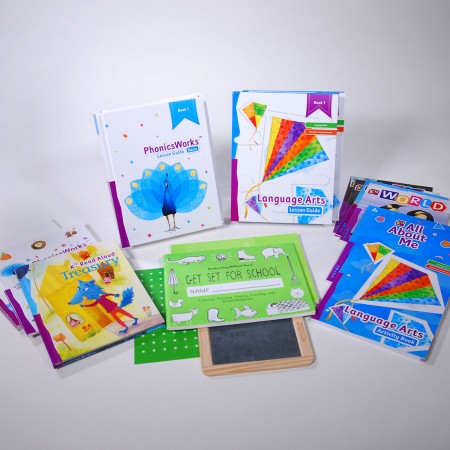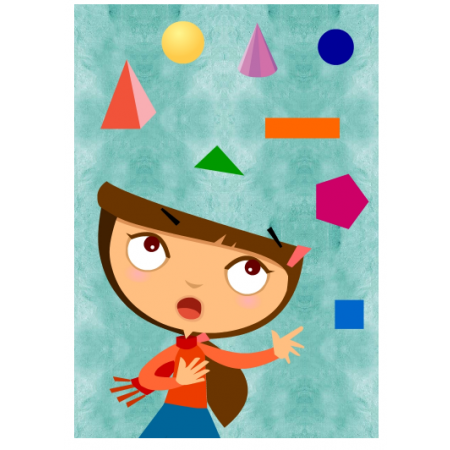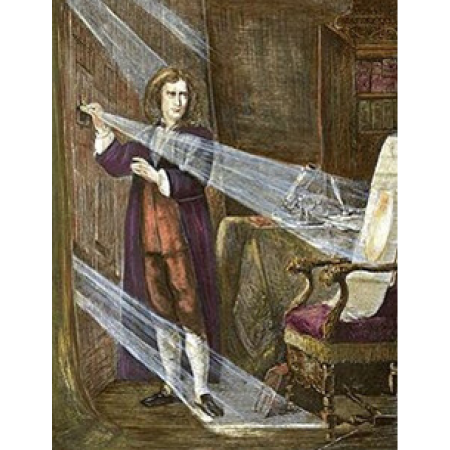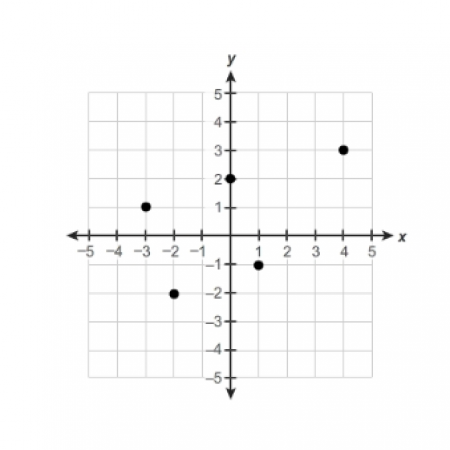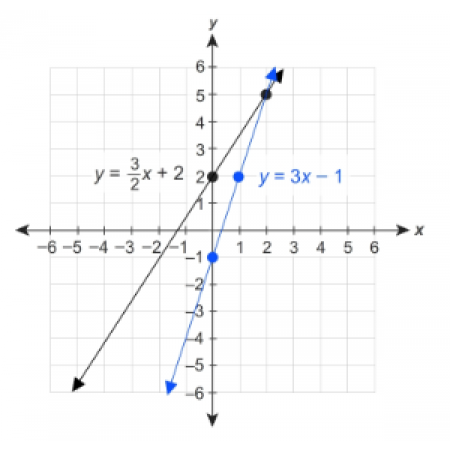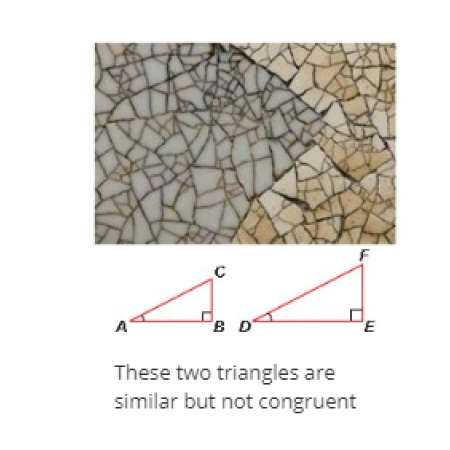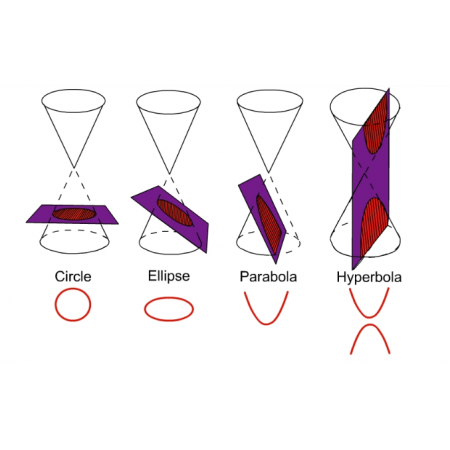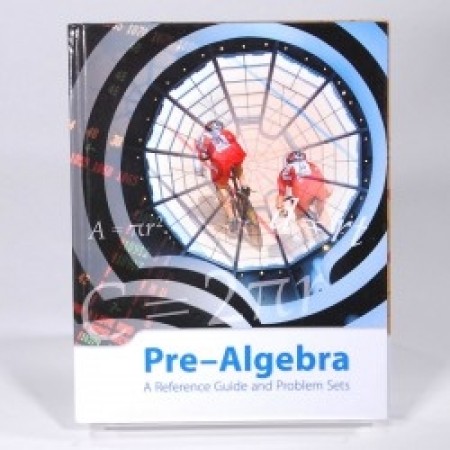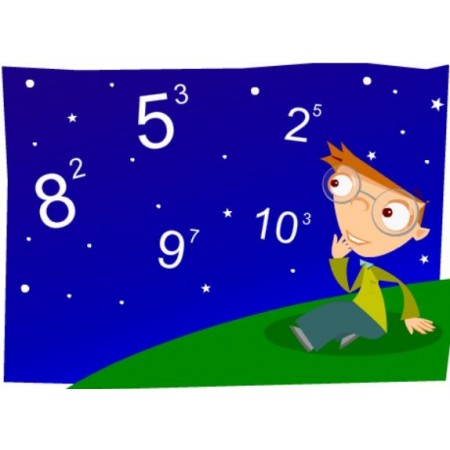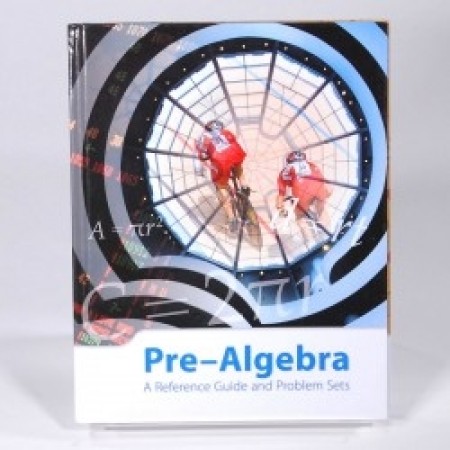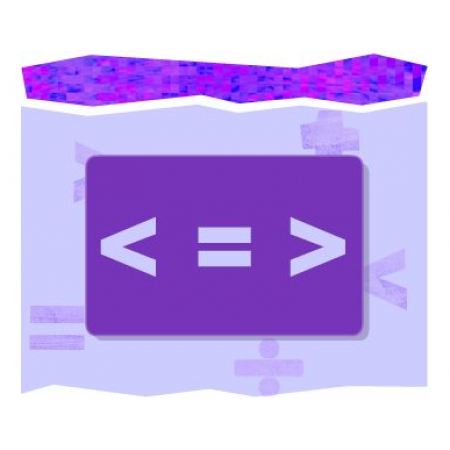x
Search results for 'summit'
Show Filter
Summit Algebra 1 Honors, Semester 1 (MTH129A)
K12’s Summit Algebra 1 course is intended to formalize and extend the mathematics that students learned in the middle grades. Because it is built to follow revised middle school math courses, the course covers slightly different ground than previous versions of Algebra. In this course, students deepen their understanding of linear and exponential relationships by contrasting them with each other. Students also apply linear models to data that exhibit a linear trend. The course also covers analyzing, solving, and using quadratic functions.From: $450.00
Summit Algebra 1, Semester 2 (MTH128B)
The Summit Algebra 1 course is intended to formalize and extend the mathematics that students learned in the middle grades. Because it is built to follow revised middle school math courses, the course covers slightly different ground than previous versions of algebra. In this course, students deepen their understanding of linear and exponential relationships by contrasting them with each other. Students also apply linear models to data that exhibit a linear trend. The course also covers analyzing, solving, and using quadratic functions.
Click here for a Sample Lesson.
From: $450.00
Summit Algebra 1, Semester 1 (MTH128A)
The Summit Algebra 1 course is intended to formalize and extend the mathematics that students learned in the middle grades. Because it is built to follow revised middle school math courses, the course covers slightly different ground than previous versions of algebra. In this course, students deepen their understanding of linear and exponential relationships by contrasting them with each other. Students also apply linear models to data that exhibit a linear trend. The course also covers analyzing, solving, and using quadratic functions.
Click here for a Sample Lesson.
From: $450.00
Summit Pre-Calculus/Trigonometry, Semester 2 (MTH403B)
Pre-calculus weaves together concepts of algebra and geometry into a preparatory course for calculus. The course focuses on the mastery of critical skills and exposure to new skills necessary for success in subsequent math courses. Topics include quadratic, exponential, logarithmic, radical, polynomial, and rational functions; matrices; and conic sections in the first semester. The second semester covers an introduction to infinite series, trigonometric ratios, functions, and equations; inverse trigonometric functions; applications of trigonometry, including vectors; polar equations and polar form of complex numbers; arithmetic of complex numbers; and parametric equations.
Connections are made throughout the course to calculus and a variety of other fields related to mathematics. Purposeful concentration is placed on how the concepts covered relate to each other. Demonstrating the connection between the algebra and the geometry of concepts highlights the interwoven nature of the study of mathematics.
From: $450.00
Summit Pre-Calculus/Trigonometry, Semester 1 (MTH403A)
Pre-calculus weaves together concepts of algebra and geometry into a preparatory course for calculus. The course focuses on the mastery of critical skills and exposure to new skills necessary for success in subsequent math courses. Topics include quadratic, exponential, logarithmic, radical, polynomial, and rational functions; matrices; and conic sections in the first semester. The second semester covers an introduction to infinite series, trigonometric ratios, functions, and equations; inverse trigonometric functions; applications of trigonometry, including vectors; polar equations and polar form of complex numbers; arithmetic of complex numbers; and parametric equations.
Connections are made throughout the course to calculus and a variety of other fields related to mathematics. Purposeful concentration is placed on how the concepts covered relate to each other. Demonstrating the connection between the algebra and the geometry of concepts highlights the interwoven nature of the study of mathematics.
From: $450.00
Summit Art 1 (Independent Study)
Art 1 lessons include an introduction to the art and architecture of different cultures such as Mesopotamia and ancient Egypt, Greece, and China. Students will identify landscapes, still lifes, and portraits; study elements of art such as line, shape, and texture; and create art similar to the works they learn about, using many materials and techniques. For example, inspired by Vincent van Gogh’s The Starry Night, students paint their own starry landscape using bold brushstrokes, and make clay sculptures inspired by a bust of Queen Nefertiti and the Great Sphinx.From: $24.00
Summit Pre-Algebra, Semester 1 (MTH113A)
In this course, students take a broader look at computational and problem-solving skills while learning the language of algebra. Students extend their understanding of ratio to develop an understanding of proportions and solve problems including scale drawings, percent increase and decrease, simple interest, and tax. Students extend their understanding of numbers and properties of operations to include rational numbers. Signed rational numbers are contextualized and students use rational numbers in constructing expressions and solving equations. Students derive formulas and solve two-dimensional area problems including the area of composite figures. In three dimensions, students find surface area using formulas and nets. Students also compute the volume of three-dimensional objects including cubes and prisms. Students make use of sampling techniques to draw inferences about a population including comparative inferences about two populations. Students also investigate chance processes through experimental and theoretical probability models. This is the first semester of a two semester course.From: $450.00
Summit Math Plus Yellow (5) (Independent Study)
This research-based course focuses on computational fluency, conceptual understanding, and problem-solving. The engaging course features new graphics, learning tools, and games; adaptive activities that help struggling students master concepts and skills before moving on; and more support for Learning Coaches to guide their students to success. This course for students in Grade 5 investigates whole numbers through practical situations in rounding, exponents and powers, and elementary number theory. Students begin addition and subtraction of integers and apply all of their work with rational numbers to problem-solving experiences. The study of algebra includes work with variables, solving equations and inequalities, using formulas within geometry and measurement, and work within the coordinate system. The study of geometry encompasses properties of lines, angles, two- and three-dimensional figures, and formal constructions and transformations.From: $24.00
Summit Pre-Algebra, Semester 2 (MTH113B)
In this course, students take a broader look at computational and problem-solving skills while learning the language of algebra. Students extend their understanding of ratio to develop an understanding of proportions and solve problems including scale drawings, percent increase and decrease, simple interest, and tax. Students extend their understanding of numbers and properties of operations to include rational numbers. Signed rational numbers are contextualized and students use rational numbers in constructing expressions and solving equations. Students derive formulas and solve two-dimensional area problems including the area of composite figures. In three dimensions, students find surface area using formulas and nets. Students also compute the volume of three-dimensional objects including cubes and prisms. Students make use of sampling techniques to draw inferences about a population including comparative inferences about two populations. Students also investigate chance processes through experimental and theoretical probability models. This is the second semester of a two semester course.From: $450.00
Summit Math Plus Purple (3) (Independent Study)
This research-based course focuses on computational fluency, conceptual understanding, and problem-solving. The engaging course features new graphics, learning tools, and games; adaptive activities that help struggling students master concepts and skills before moving on; and more support for Learning Coaches to guide their students to success. This course for students in Grade 3 provides a quick overview of whole number addition and subtraction, but has a greater focus on whole number multiplication and division, encompassing early algebraic thinking. Decimals are studied in relationship to place value and money, and fractions are addressed through multiple representations and probability. Students are introduced to specific methods and strategies to help them become more effective problem solvers. Geometry and measurement are addressed through the study of two- and three-dimensional shapes, early work with perimeter, area, and volume, and applying measuring techniques to time, length, capacity, and weight.From: $24.00
Summit Math Plus Red (4) (Independent Study)
This research-based course focuses on computational fluency, conceptual understanding, and problem-solving. The engaging course features new graphics, learning tools, and games; adaptive activities that help struggling students master concepts and skills before moving on; and more support for Learning Coaches to guide their students to success. This course for students in Grade 4 moves into applications and properties of operations. Students work with simple fraction and decimal operations, which are applied in the study of measurement, probability, and data, and mathematical reasoning techniques. Students begin the study of equivalencies between fractions and decimals on the number line and early work with integers. Algebraic thinking is developed as students work with variables, coordinate graphing, and formulas in problems involving perimeter, area, and rate. Geometry is extended into greater classification of shapes and work with lines, angles and rotations.From: $24.00
Summit Math Plus Orange (2) (Independent Study)
This research-based course focuses on computational fluency, conceptual understanding, and problem-solving. The engaging course features new graphics, learning tools, and games; adaptive activities that help struggling students master concepts and skills before moving on; and more support for Learning Coaches to guide their students to success. This course for students in Grade 2 focuses primarily on number concepts, place value, and addition and subtraction of numbers through 1,000. Special emphasis is given to problem solving, inverse operations, properties of operations, decomposition of numbers, and mental math. Students study money, time, and measurement; geometric figures; analyzing and displaying data with new representations; and determining the range and mode of data. Early concepts about multiplication, division, and fractions are introduced.From: $24.00
NEED MORE INFO
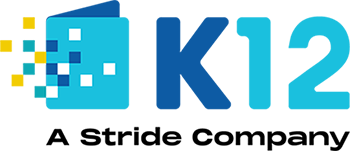
THANK YOU!
We have received your inquiry and you will start to receive additional information about our school offerings and programs. An enrollment consultant will contact you shortly.
